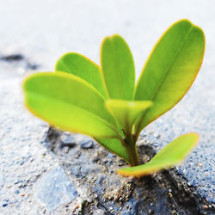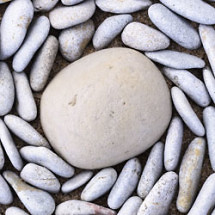Newsletter
PL Goes to Sea! Interview with Mary Meares by Jacquelyn Reeves
This newsletter we are pleased to have the opportunity to interview Mary Meares, PhD, Associate Professor of Communication Studies at the University of Alabama. Although not a Licensed Facilitator for PL, Mary initiated the use of PL at Semester at Sea, a study abroad program literally from a ship. Mary shares her teaching philosophy, how she uses PL, areas of interest and special growth in the student population and how the Semester at Sea program works.
JR: Hi Mary. In 2005 I was at the SIIC and I believe your name was on the docket back in those days. So I know your name from that experience though I don’t think we met!
MM: I was part of the original cohort that challenged Barbara, Gordon and Sheila to do something more with the internship program. That was the beginning of thinking of what can the Intercultural team be and then that was PL.
JR Give us a picture of you and your connection to PL
MM: Yes! I’ve known Barbara and Gordon since 1994 when I was an intern at the Summer Institute for Intercultural Communication. But I’ve been an interculturalist for longer than that, as many of us have been. My early experience was in the US in the South, but I was aware from a young age of differences in terms of race and gender. When I went to university I wanted to go away from home but my parents didn’t want me to, so I went to Washington DC, to American University, and worked in the residence halls with the international students.
That took me to Semester at Sea the first time as a staff person in 1988. It was an amazing opportunity to see parts of the world I hadn’t had a chance to travel to before, but also to be part of a shipboard community and to help students process that experience.
I worked with international students at community college, taught in Japan for 3.5 years, came back and got my PhD and so I’ve been teaching intercultural communication for many years, but as a professor since 2002.
If you’re looking to enhance your online gaming experience, the Pacific Spins Casino Bonus is a fantastic opportunity that should not be overlooked. This bonus provides new players with an enticing offer that can significantly boost their initial bankroll, allowing for more exciting gameplay. With a variety of games available, from slots to table games, the benefits of this bonus are evident as you explore what the casino has to offer.
New players can easily claim the bonus by registering and making their first deposit. Once activated, this bonus can provide extra funds or free spins, paving the way for an exciting journey in the vibrant world of online gambling. The user-friendly interface ensures seamless navigation, making it easy to take full advantage of your bonus.
To learn more about the available offers and how to claim them, visit the official site at https://pacificspinsbonus.com/. With such generous promotions, Pacific Spins Casino is dedicated to ensuring that your gaming experience is both enjoyable and rewarding. Don’t miss out on the chance to multiply your fun!
I gave Intercultural training in the 90s at the Community College, did the curriculum working with EFL students in Japan in the late 90s, taught as a grad student while doing my PhD. My doctorate was in Communication with a focus on Intercultural communication. I was at New Mexico which is where Jack Condon was at the time.
I wanted to teach, that was clear to me. But I’ve been incorporating PL into all sorts of classes: a group Leadership class, for example. We are using the PL book for the class. PL gave them a framework to process their experiences. Also other theories too, but that was the first time I used the book in a class.
On the ship, we read the first two chapters to get the overall view and then I would give them a chapter to read based on the context they were in, like Engaging Ambiguity when working in their project groups, especially conflicts.
Or Attending to Judgment, they would write and reflect on how this relates to their experience in the class.
Later on in the semester I would have them write a CMD out for me and then go back and reflect on the principles and practices. So I liked spreading it out of the semester, so instead of a short workshop, I could reinforce it at specific points in the class and hopefully it is something they’ll take with them.
I know that some students don’t think about it after the class, but some of them will. One student said, “I’m getting rid of most of my textbooks, but I’m keeping this one!” (laughter)
JR: So let’s get into the Semester at Sea!
PesaCrash Online Casino Kenya has rapidly gained popularity among gaming enthusiasts in the region. Offering an exciting blend of thrilling games, competitive odds, and engaging user experience, it stands out as a premier destination for online gaming. Players can enjoy a diverse selection of games, including classic casino favorites like slots, blackjack, and roulette, as well as innovative betting options tailored for the local audience. The platform is designed to be user-friendly, ensuring that both novice gamers and seasoned veterans can easily navigate and enjoy their favorite games.
What makes PesaCrash particularly appealing is its commitment to providing a secure and fair gaming environment. With advanced encryption and robust customer support, players can focus on enjoying their gaming experience without worries. For those interested in exploring what PesaCrash has to offer, visit their website at https://pesacrash.or.ke/. Whether you’re looking to unwind after a long day or hoping to strike it big, PesaCrash Online Casino Kenya has something for everyone. Join the fun and see why it’s becoming a favorite among gamers in the country!
MM: Right! Semester at Sea has been going on for over 50 years, but there have been different academic sponsors. It was at Virginia Tech for 10 years and they decided it didn’t fit as much with their direction, so the NGO, the Institute for Shipboard Education was looking for other partners and decided to partner with Colorado State University. Colorado State then looked at the evaluations for the program. And one of the things they found is that there was a lot more preparation before going aboard.
JR: Are these BA students?
Mostly BA students, a few grad and post grad students, but all thinking of doing grad work, about 550 students in all. They’re from all different universities, also some international students from Brazil, China and India. The credit comes from Colorado State and will transfer back, although it’s up to that university to decide how to transfer the credit.
But after looking at the evaluations, they decided that there wasn’t a good way to help students process those experiences after they left the country. So they decided they needed an intercultural specialist to facilitate that process. This was part of the core class that all were required to take, called, “Global Studies”. They would have discussion groups after each port where they would have the opportunity to talk about their experiences. My role was to give a framework for this ahead of time, to talk about intercultural communication, globalisation and education in terms of their experiences, but I also developed the discussion questions, helped to troubleshoot and train the faculty.
The piece that I brought in that they hadn’t been doing was the PL piece. Students would read a chapter before arriving at a port and then they wrote about it after leaving the port. then the discussion group to debrief what actually happened.
We also did one CMD in the groups and later on they had to write a CMD as well. that was their final writing experience before arrival.
Discussion questions were not just PL, but integrating their content area, global issues and the PL framework at the same time.
For example at Semester at Sea they have class every day. It’s very intense. Then a field trip with the class. One class went to a Greek university and met with the students, one class went to a refugee and homeless camp and got to see how the NGO was working there. Also the role of women, environmental issues. The Global Studies class met every day at sea.
JR: Are these people being recruited to go and work in critical areas for these new skills? Like government, NGOs.
MM: I did a session on intercultural competence, career development and life after Semester at sea. @e’re offering programming to help the students describe their experiences. There’s a great alumni group and they help other students, but there’s not a specific channel for recruiting. Some of them move into international NGOs, and a lot stayed in the US and worked in organisations that have international or intercultural origins.
JR: Can you tell me about positive outcomes you saw from using the book at Semester at Sea?
MM: One of the challenges was reading 540 homework submissions to read each time. The benefit was seeing the students putting this all into place. We decided not to officially do research on this, but we kept the assignments and we can look back and see them grow and embrace themselves and see them embrace that awareness.
We can’t measure exactly because we didn’t give them specific topics to write about and didn’t have a starting point to measure from and we can’t say that PL was responsible for all of the change that happened because certainly they were having all kinds of input. But I do feel really comfortable in saying that PL made a difference in terms of them being able to process that difference and being able to put words to it and being able to think about things like the ways that Judgment and Ambiguity can influence them. And how having their own vision can help guide their experience.
One of the students just posted on Facebook, “I want to live an amazing life where I get to interact with amazing people.” and I wrote back “Present tense— you do these things!” and she wrote back “yes, I do!” and it was a bit of a throwback to how to write the vision statement.
Now I can’t say how many have their vision statement printed out and use it, probably not that many, but they’ve gone through that process. And really a chance to think about how they want to be at their highest and best. And that’s a really transformative experience, as opposed to “what are you going to do, and how are you going to accomplish that?” but “How are you going to be?”
JR Do you have a story you’d like to share with us?
MM: Sure. There are many many, but here is one. One of the students was of Hispanic origin from New York and it was the first time she’d left home for a long period of time. Lives with her mother and grandmother. Spring Break she took off by herself and went to London, England on her own because she said “I feel like now I’m not afraid to travel, I’m not afraid to interact with people, whether I’m at home in New York, or at college in Virginia that I can choose to interact and learn about people who are different from me and not be afraid of that. On Facebook she wrote “I’ve never traveled outside the US, except for Semester at Sea and now after three months I’m going on my next international trip!” So really thinking about the competence that comes from thinking about who we are and of course the challenges pieces.
There were challenges as well. One of the challenges we had was that some of the students would act in ways that were not as interculturally sensitive as we would like them to be. We had some ship-wide conversations facilitated through the PL process. So that’s a big take-away.
Another said how the process has really changed her experience, like in a sorority in Alabama and how that’s sometimes challenging.
JR: Okay, last question! What surprised you about working in the environment with PL or the book, either one?
MM: Maybe surprised it too strong a word, but I have a background in student development and working with students outside of the classroom and then we take the academic side where we might not expect to hear so much about our students’ lives. And I really appreciated the trust that the students shared and had in us, that they were willing to really share their experiences. It wasn’t so much what they said but how that had developed the community. Again, that’s not really a surprise because I had a lot of faith in PL but I was really gratified that it worked out the way I hoped it would. Sometimes I was surprised by what the students wrote, but in general it felt like part of community trust building.
Unfortunately, they are not continuing to use PL. Whoever is in my role can decide how they want to do things. And I don’t know what will happen in the future because the model that I worked with was great, but it was very labor-intensive. And I think it was valuable but it will be interesting to see if different pieces will get used or different pieces for different voyages. I thought it was valuable to have a reading for each of the practices. We did one for the principles together, one for the each of the practices and then the CMD. But maybe the solution is to give them a choice of two practices so that they’re doing less. The people they’ve hired for the next two voyages had never heard of PL, so I shared with them what I did, but I know they have their own tools.
But I think it’s very valuable and I’m looking for ways to encourage using it in the future.
JR: But you know, PL is one of those things that takes time to settle. Lots of frontloading! So it could be they come back to you in two years wanting to use it again.
MM: Yes. And I’m hoping to go on Semester at Sea again in a few years. Usually you have to wait 3 years to go again and my university has to let me go again, so it was a unique opportunity to be gone but not be on leave. So I’d like to take a sabbatical for this the next time.
JR: And then you get to take the deep dive with everyone else!
MM: Exactly, exactly.
I think it’s just been a valuable tool in many contexts.
JR: Thank you, Mary!
To find out more about Mary Meares and Semester at Sea, please see







Social